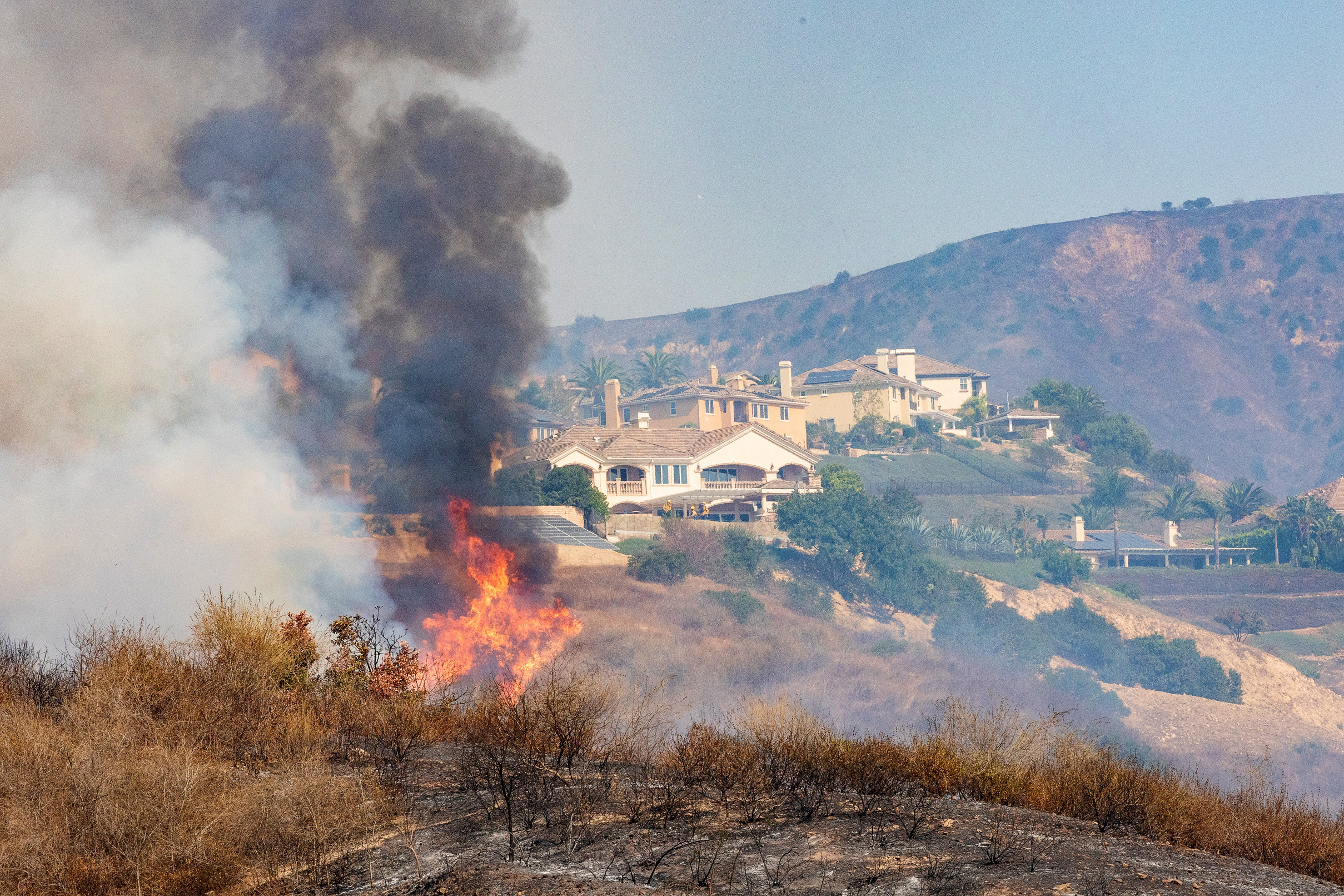Amid rising costs and state regulators saying insurers cannot raise their rates, an increasing number of large providers have paused writing new policies, saying doing business in California has become too expensive.
According to a report from September by Insurance Information Institute—a New York-based organization that provides information on insurance to the consumer—insurers in California failed to collect more from their policyholders’ premiums than what they paid in claims between 2013 and 2022, with $1.08 spent for every $1 received.
Part of the issue, according to the institute, is a 1988 measure, Proposition 103, which does not allow insurers to use risk-based pricing. This has prevented providers from using a forward-thinking approach, as they can only set rates based on “historical data,” such as fires in the last 20 years.
“What’s happened over the years is the cost to build properties has outpaced inflation, but the regulations have kept the insurance premiums in California artificially low,” said Janet Ruiz, director of communications for the institute.
She told The Epoch Times another issue under Prop. 103 is what’s known as the intervenor process, in which the state’s department of insurance reviews all proposed rate increases that are 7 percent or greater, which can sometimes take years.
“The intervenor process takes a long time. There have been some rate requests that have taken two to three years,” she said.
According to the institute’s report, recent disaster-prone years have led to unprofitability, with fires in 2017 and 2018 costing insurers over $2 for every one they took in.
In 2018, the Camp Fire, the deadliest and most destructive wildfire in the state’s history, destroyed over 18,000 buildings in Northern California’s Butte County.
Excluding those two years, in the last decade insurers spent 78 cents for every dollar received from premiums between 2013 and 2022—but the two bad years were enough to offset the rest, according to Ms. Ruiz, leading to an overall deficit for the 10-year period.
“Significantly more money went out then came in,” she said.
In the same report, national averages for homeowners’ insurance premiums in 2020, according to the most recent data available, placed California below average, despite having more natural disasters than most states.
Researchers pointed out that disaster-prone states such as Florida, Oklahoma, Louisiana, and Texas all had premiums nearly double that of California, despite the Golden State having some of the most expensively built housing, which typically jacks up the insurance premiums.
The average yearly rate in California in 2020 was $1,240, while in Florida it was $2,165, with three other states averaging $2,000 or more.
Ms. Ruiz said she estimates those numbers have jumped drastically, with Florida now at around $6,000 a year and California at about $1,700, leading to the pause on new policies by some providers such as State Farm and Allstate in California. She said this is because with insurers limited on raising premiums across the state—unlike in other states—they can’t take on as many new policies to safeguard existing customers’ insurance needs.
Earlier this year, State Farm announced it would stop accepting new business for casualty and property insurance but would continue to write auto policies.
Allstate, around the same time, stopped issuing new policies for commercial and residential properties, according to media reports.
In September, AmGUARD Insurance, a subsidiary of Berkshire Hathaway, said it would also withdraw from California, in addition to Falls Lake Insurance, which said it would drop its current homeowner’s policies.
And Farmers Direct Property and Casualty Insurance surrendered its certificate of authority Sept. 15 in California, which means the home and auto insurance provider no longer offers any policies in the state.
A spokesperson for the company told The Epoch Times in an email last month its decision was due to an initiative by its parent company, Farmers Insurance, to “increase operation efficiency and mitigate risk exposure,” among other issues.
But California Insurance Commissioner Ricardo Lara said in a Sept. 21 press release that changes were underway to promote the writing of new policies.
“The current system is not working for all Californians, and we must change course. I will continue to partner with all those who want to work toward real solutions,” he said.
He announced new rules to be implemented by the end of 2024 requiring insurers to write at least 85 percent of their policies in high-wildfire-risk communities, as part of a plan to expand insurance options in the state, which some industry experts call the biggest reform in over 30 years. The rules also require people to receive discounts if they have implemented mitigated wildfire risks—such as installing double pane windows—at their homes or properties.
Currently, insurance companies may not write policies for high-risk areas when a foreseeable fair return is not expected, according to the commissioner’s press release.
The state is currently offering, as a last resort, its so-called FAIR plan—which provides some basic coverage when other insurers aren’t available—but premiums are usually much higher.
Since 2022, seven of the top 12 insurance companies in the state have either paused or restricted new policies despite approved rate increases given by the department of insurance, according to Mr. Lara, the insurance commissioner.
According to his plan, the insurance department will consider allowing insurers to factor in reinsurance costs into their rates, which is when an insurer transfers some of its insured risks to another insurer, which is currently allowed in all states but California.
“[Forty-nine] states allow that at this time. So, it’s an important part of doing business in California,” Ms. Ruiz said.














